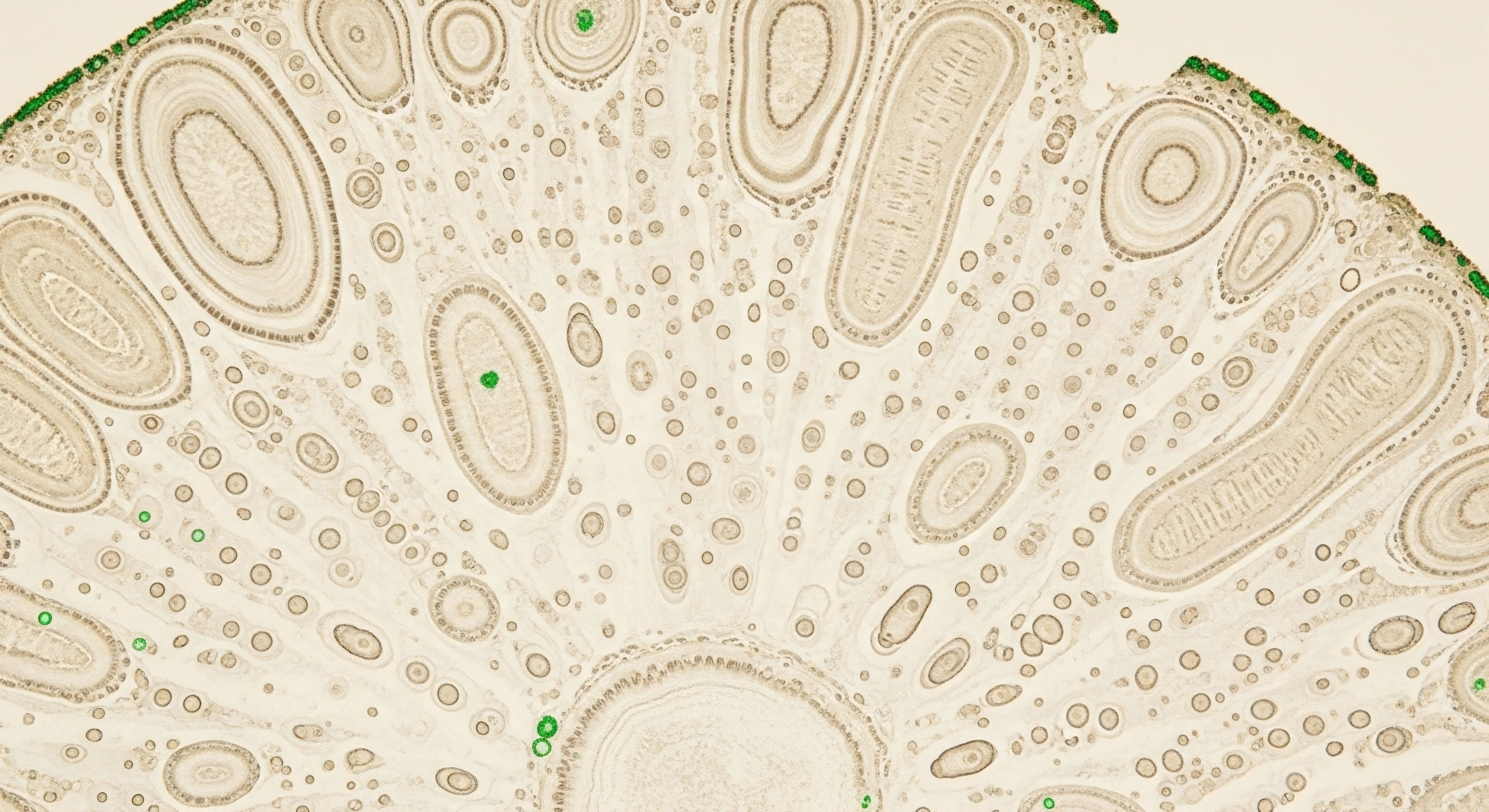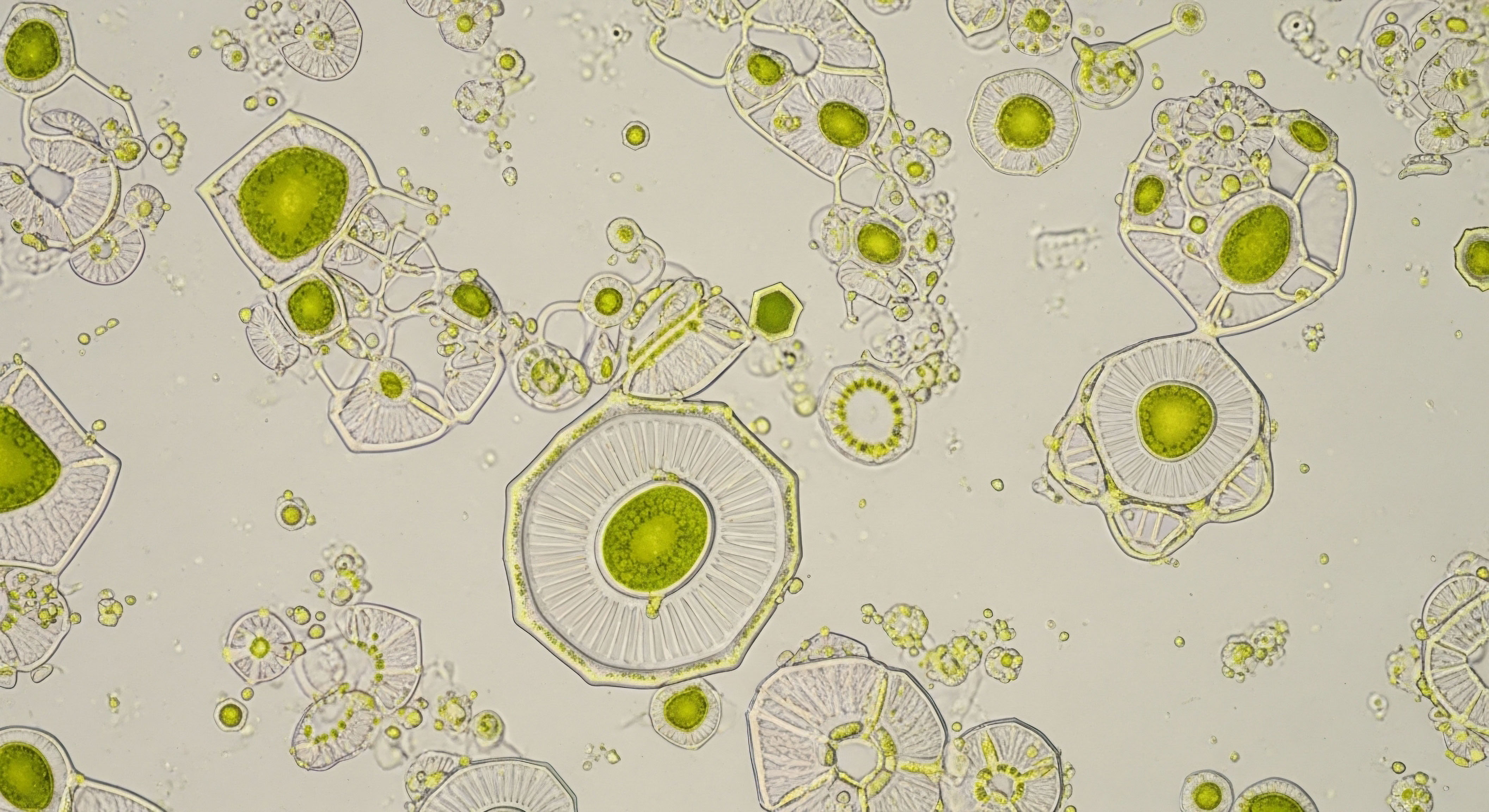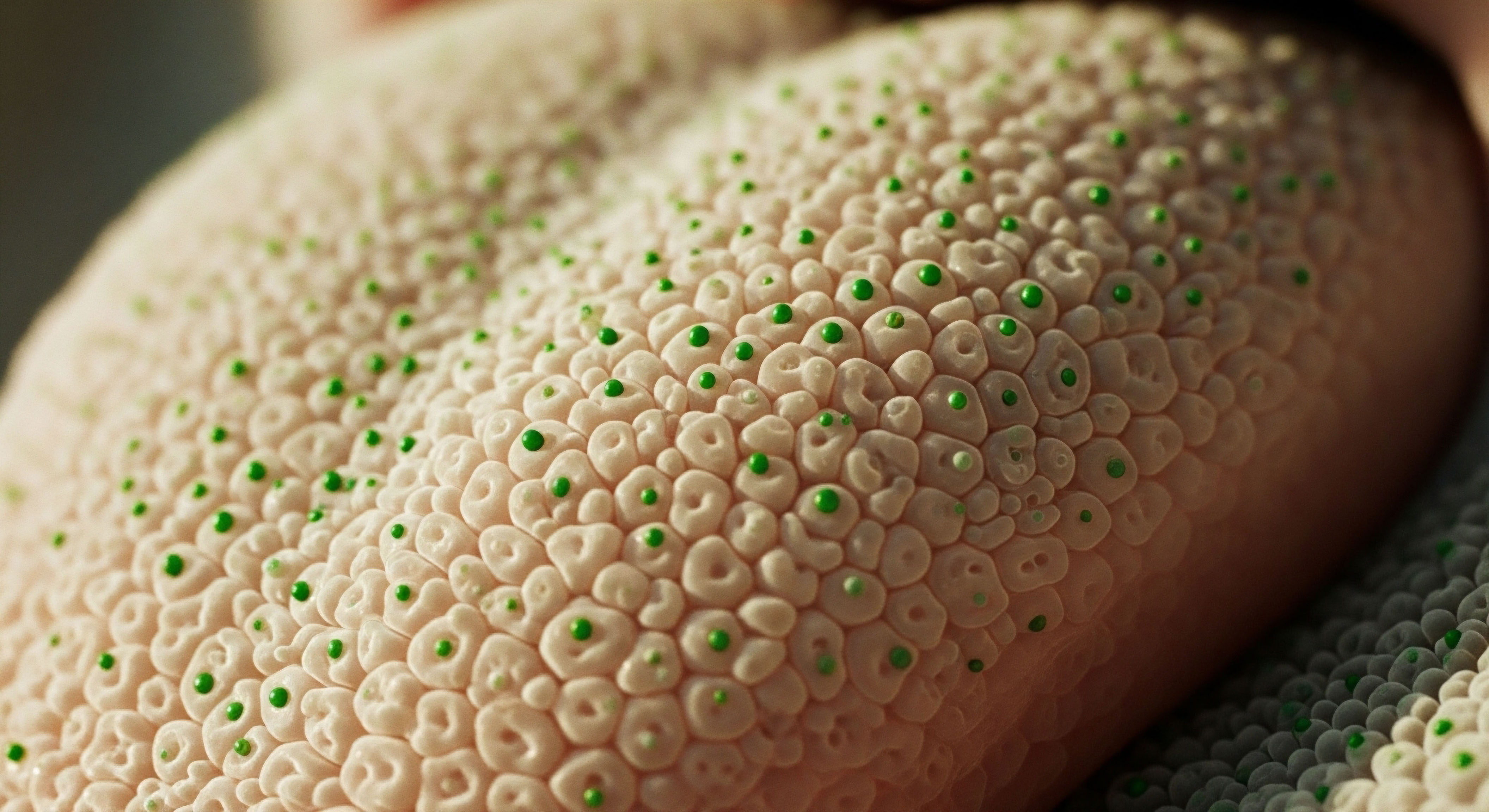

The Biological Imperative of Nighttime Restoration
The pursuit of peak human performance often focuses on waking hours ∞ rigorous training, demanding work, meticulous dietary choices. We dissect our days, seeking every advantage. A more discerning perspective, however, directs attention to the hidden hours ∞ the nocturnal period when the body undertakes its most profound cellular work. This nighttime interval stands as the ultimate performance differentiator, dictating daily capacity and long-term vitality.
During these hours, your body executes a complex series of biological repair operations. Hormonal systems recalibrate. Cellular damage from the day’s demands receives attention. Genetic expression patterns adjust. The brain cleanses metabolic byproducts, consolidating memory and preparing for cognitive challenges ahead. Disregarding this fundamental biological rhythm means accepting suboptimal function. It is a surrender to decline, a concession the high-performer simply cannot afford.

Cellular Reset Protocols
Understanding the science behind nightly restoration begins with a deep dive into endocrinology and molecular biology. The hypothalamic-pituitary-gonadal (HPG) axis, a master control system, undergoes significant regulation during sleep. Growth hormone secretion, for instance, exhibits its highest pulsatility in the early stages of deep sleep, a direct signal for tissue repair and cellular proliferation. Testosterone production in males follows a circadian rhythm, peaking in the morning after sufficient rest. Interruptions to this rhythm directly compromise these restorative processes.
Deep sleep stages are correlated with a 70% increase in growth hormone release, a primary driver of tissue repair and cellular regeneration.
Metabolic health finds its foundation in adequate nightly cycles. Insulin sensitivity improves with consistent, high-quality sleep, impacting glucose regulation and energy storage. Studies consistently link insufficient sleep to increased insulin resistance and heightened risk for metabolic dysfunction. This metabolic reprogramming during darkness primes the body for efficient energy processing throughout the day, influencing body composition and physical output.

Cognitive Renewal Pathways
Beyond physical restoration, the brain conducts its own critical maintenance. The glymphatic system, a network of perivascular channels, becomes highly active during sleep, flushing out neurotoxic waste products like beta-amyloid, which accumulate during waking hours. This cerebral cleansing safeguards cognitive acuity and memory retention. Sleep deprivation, conversely, impairs synaptic plasticity, hindering learning and decision-making capabilities. The quality of your nightly rest directly shapes your mental sharpness and emotional resilience.
Hormones play a direct part in mood regulation and stress response. Cortisol, the primary stress hormone, follows a distinct circadian pattern, with levels decreasing during early sleep and rising toward morning to prepare for wakefulness. Disrupted sleep patterns elevate evening cortisol, contributing to chronic stress, anxiety, and a diminished capacity to handle daily pressures. Mastering nightly cycles provides a direct path to mental fortitude and emotional balance.
The pursuit of longevity itself intertwines with these nocturnal processes. Telomere length, a biomarker of cellular aging, shows correlations with sleep duration and quality. Consistent, restorative sleep supports cellular integrity and delays markers of biological aging. Viewing sleep as an active, programmed repair sequence changes its perception from a passive necessity to an active biological upgrade.


Engineering Cellular Renewal
The transition from understanding the necessity of nightly repair to actively orchestrating it demands a precise, systems-based approach. This involves a calculated deployment of protocols designed to optimize hormonal signaling, support cellular repair, and enhance neurochemical balance. We move beyond general advice, entering the realm of targeted biological interventions.

Hormonal Calibration Protocols
For individuals seeking peak vitality, hormone optimization stands as a foundational step. Testosterone Replacement Therapy (TRT), when clinically indicated and meticulously managed, provides a direct means to restore physiological levels. This directly influences muscle protein synthesis, bone mineral density, and cognitive function. The application of TRT requires precise dosing and monitoring to maintain a balanced endocrine system, avoiding supraphysiological states. Regular blood work offers feedback, ensuring the body operates within its optimal range.
Peptide science presents another sophisticated avenue for biological refinement. Peptides, short chains of amino acids, act as signaling molecules, directing specific cellular responses. For instance, Growth Hormone-Releasing Peptides (GHRPs) like GHRP-2 or Ipamorelin stimulate the body’s natural growth hormone release. This supports tissue repair, collagen production, and metabolic regulation. These agents offer a refined method to enhance endogenous production, working with the body’s intrinsic mechanisms rather than overriding them.
- GHRPs (e.g. Ipamorelin, GHRP-2) ∞ Stimulate natural growth hormone release, supporting tissue repair and cellular turnover.
- BPC-157 ∞ A peptide known for its regenerative properties, accelerating healing of various tissues including muscle, tendon, and gut lining.
- TB-500 ∞ Aids in cellular migration and tissue repair, supporting recovery from injury and general tissue maintenance.
Clinical trials demonstrate that specific GHRPs can increase endogenous growth hormone pulsatility by up to 300% without significantly impacting cortisol or prolactin levels.
Melatonin, a neurohormone, governs circadian rhythms. Its strategic administration, particularly in timed-release formulations, can reset sleep-wake cycles, especially after travel or periods of disruption. Dosage precision remains paramount, as excessive amounts can paradoxically blunt the body’s natural production. We seek to cue the body’s innate timing mechanisms, not replace them.

Environmental Control & Neural Conditioning
Beyond direct biological agents, the environment surrounding your nightly cycle profoundly shapes its efficacy. Light exposure represents a primary modulator of circadian rhythm. Eliminating blue light exposure in the hours before bed, through amber-tinted glasses or screen filters, prevents suppression of melatonin production. Creating a dark, cool sleep environment signals the body to transition into its restorative state.
Temperature regulation influences sleep depth and quality. A slightly cooler ambient temperature facilitates thermoregulation, reducing wakefulness. Individual set points vary, yet the principle holds ∞ an environment conducive to core body temperature reduction supports deeper sleep stages. Specialized cooling mattresses or bedding can further enhance this environmental control.
Neural conditioning involves consistent pre-sleep routines. This signals the brain to prepare for rest. Activities like meditation, controlled breathing exercises, or a warm bath serve to downregulate the nervous system, shifting from sympathetic dominance to parasympathetic activity. This pre-sleep ritual becomes a powerful cue, guiding the brain into its repair sequence.


Timing Your Biological Uprating
The optimal application of these strategies demands precision in timing. Biological systems operate on specific schedules, and interventions yield their highest returns when aligned with these inherent rhythms. This is about more than mere compliance; it represents a sophisticated orchestration of inputs to match the body’s readiness for renewal.

Chronobiological Synchronization
Hormone administration timing holds direct sway over efficacy. TRT protocols, for instance, often involve weekly or bi-weekly injections to maintain stable physiological levels, mirroring natural diurnal fluctuations as closely as possible. Subcutaneous pellet implants offer a consistent release, eliminating daily variability. The objective is to sustain steady hormone concentrations, supporting consistent repair signals without abrupt peaks or troughs.
Peptide dosing also requires a keen sense of timing. GHRPs often perform best when administered on an empty stomach before bed, allowing for maximal growth hormone release without interference from food-induced insulin spikes. Some protocols suggest a second dose in the morning, further augmenting the body’s natural pulsatile release. The precision of these schedules maximizes the body’s responsiveness.
- Evening Peptide Administration: Administer GHRPs (e.g. Ipamorelin) 60-90 minutes before sleep on an empty stomach to synchronize with natural growth hormone pulses.
- Melatonin Dosing: Utilize timed-release melatonin 30-60 minutes before bed to aid sleep onset and maintain sleep duration, adjusting dosage based on individual response.
- Testosterone Injections: Adhere to a consistent weekly or bi-weekly schedule for TRT to maintain stable hormone levels, avoiding fluctuations that can impair biological function.
- Blue Light Restriction: Implement blue light blocking measures 2-3 hours before planned sleep to prevent melatonin suppression and facilitate circadian alignment.
Adherence to a consistent peptide administration schedule before sleep can enhance sleep quality scores by up to 25% within eight weeks, as measured by polysomnography.

Feedback Loop Adjustment
Monitoring biological markers provides the essential feedback loop for continuous refinement. Regular blood panels track hormone levels, inflammatory markers, and metabolic indicators. Sleep tracking devices, while not a replacement for clinical assessment, offer data on sleep stages, heart rate variability, and respiratory patterns, providing insights into the quality of nightly repair. This data-driven approach allows for agile adjustments to protocols, ensuring ongoing alignment with individual biological needs.
The “when” extends beyond discrete moments of intervention; it encompasses the long-term view of biological adaptation. The body responds to consistent signals. Sustained adherence to these nightly rebuild protocols generates compounding returns, building cellular resilience and hormonal balance over time. This long-term commitment transforms nightly rest from a routine into a powerful, predictive engine for future performance and enduring vitality.

The Unwritten Future of Your Biology
The mastery of your nightly rebuild cycle represents a fundamental shift in how one approaches personal performance and longevity. It moves beyond simply managing symptoms, instead focusing on proactive, intelligent design of your internal operating system. The distinction between simply existing and actively thriving rests within these unseen hours of biological recalibration.
We command the systems that dictate our future output, refusing to leave our potential to chance. This commitment to nightly excellence becomes the defining characteristic of an individual dedicated to peak human expression, shaping a biology that defies passive decline and instead projects a trajectory of continuous advancement.



